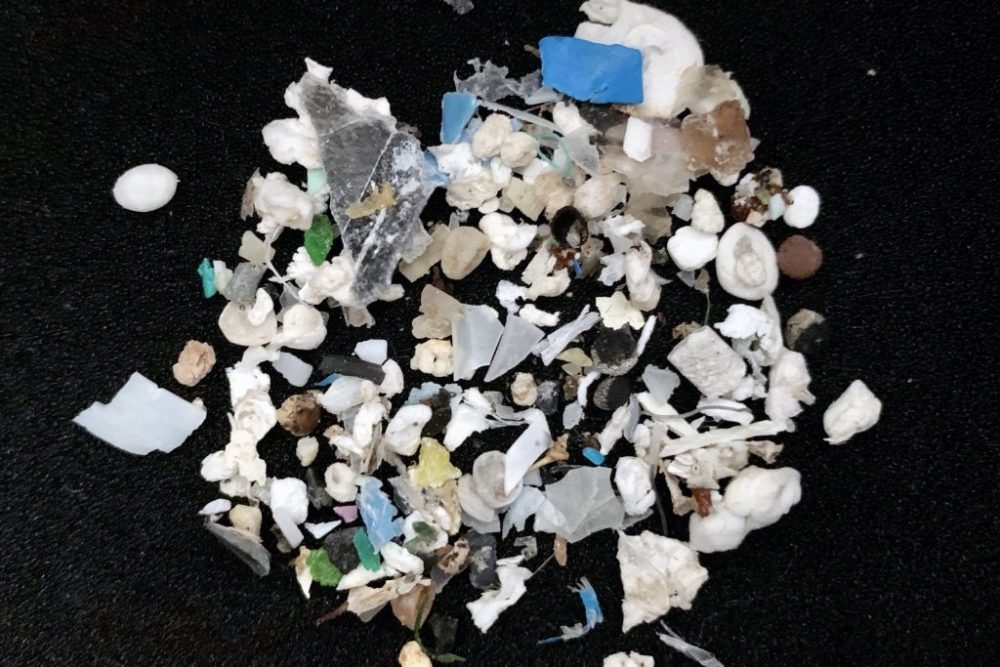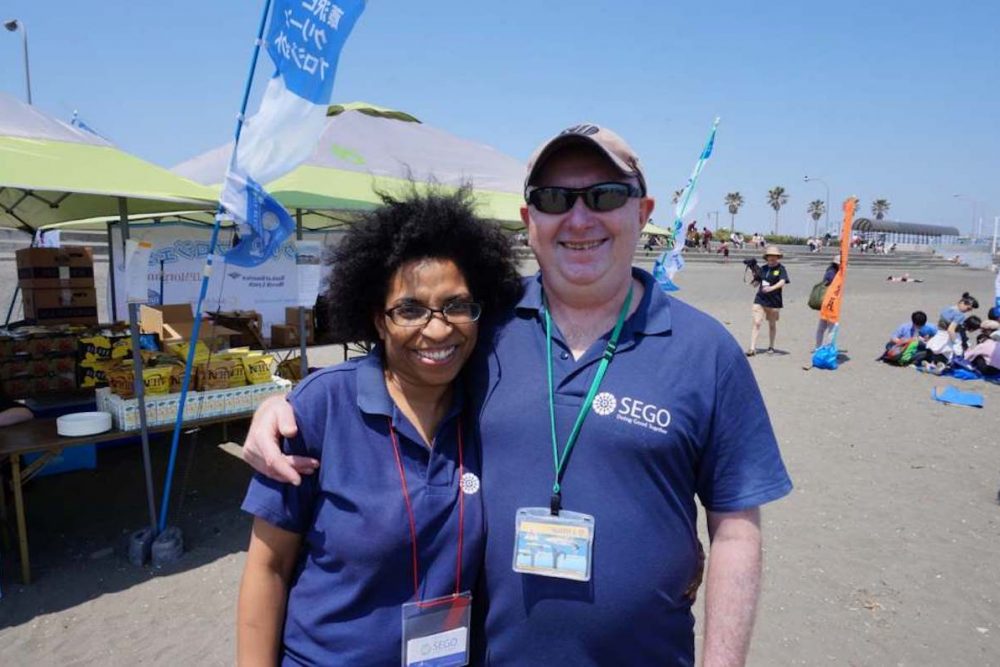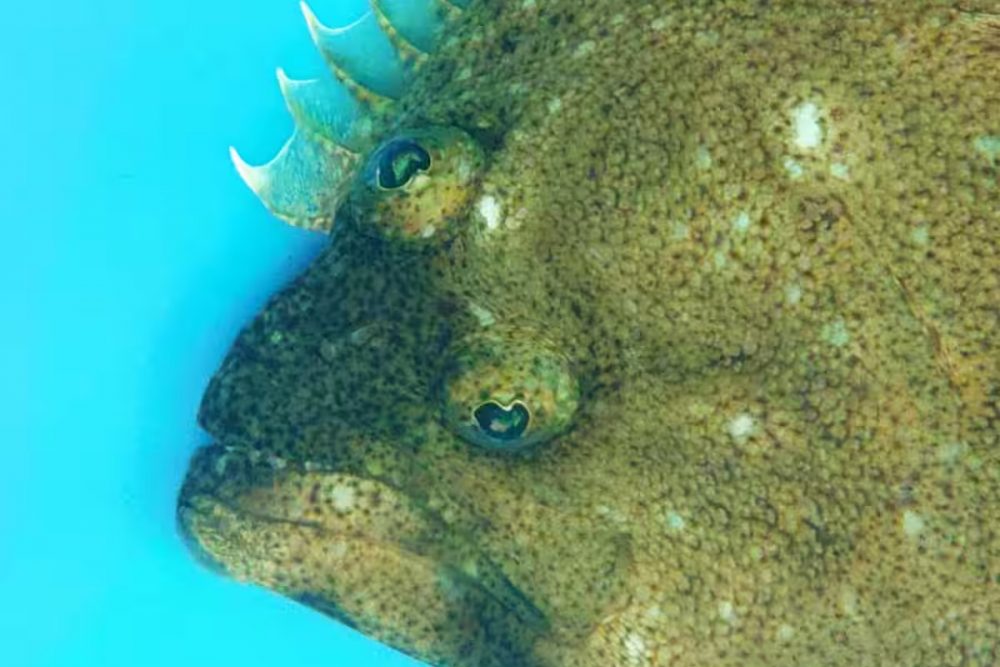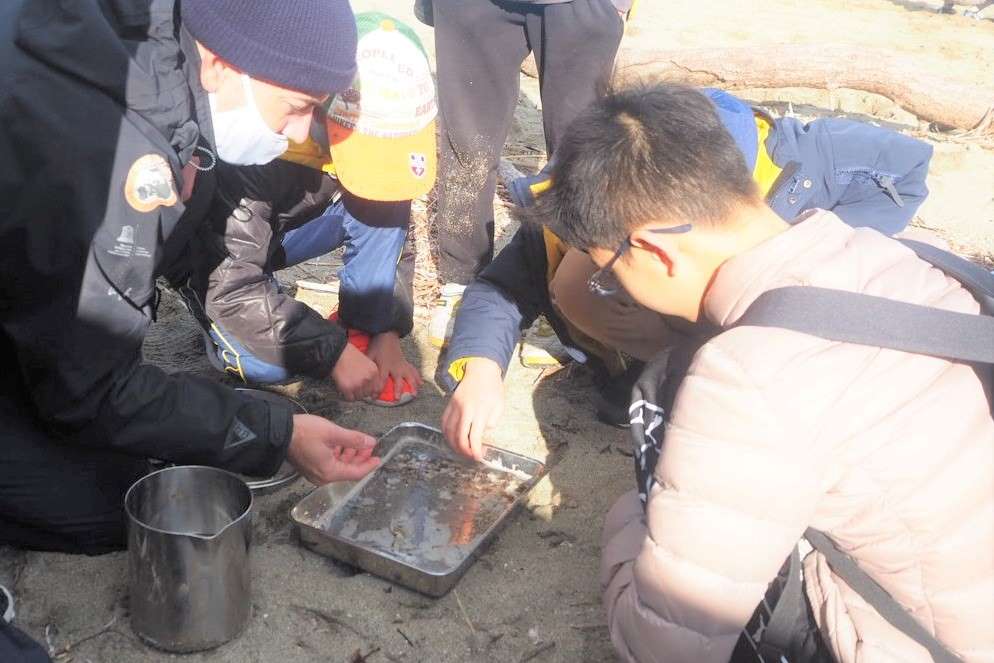SPOGOMI World Cup Raises Awareness on Marine Plastic Waste
Combining trash cleanup and sport, the SPOGOMI World Cup called for action on the pressing issue of marine plastic waste, with teams from around the world.
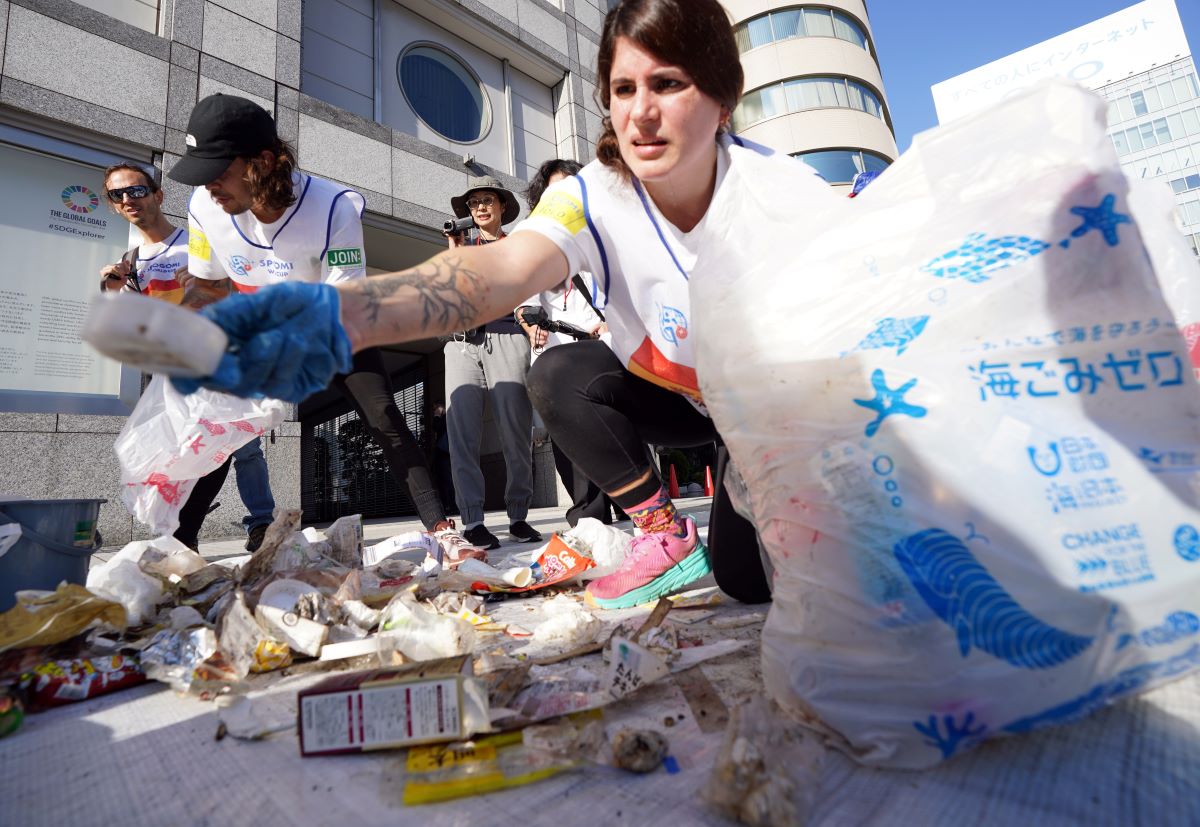
このページを 日本語 で読む
Picking up litter on land to protect the oceans is one of the goals of the SPOGOMI World Cup 2023. Held for the first time in Tokyo on November 22, the event adds a sporting element to street cleanup with the aim of reducing marine plastic waste. Threats posed to marine life by plastic waste in the oceans have spurred a global movement that is gaining momentum. Japan has begun charging for plastic bags. But if even stricter international rules could be established, they could potentially transform our lifestyles.
Plastic as an Environmental Threat
A 2017 report compiled by the World Economic Forum entitled The New Plastics Economy (2017) estimated that 8 million tons of plastic waste is discharged into the ocean each year worldwide. Japan is considered responsible for between 20,000 and 60,000 tons.
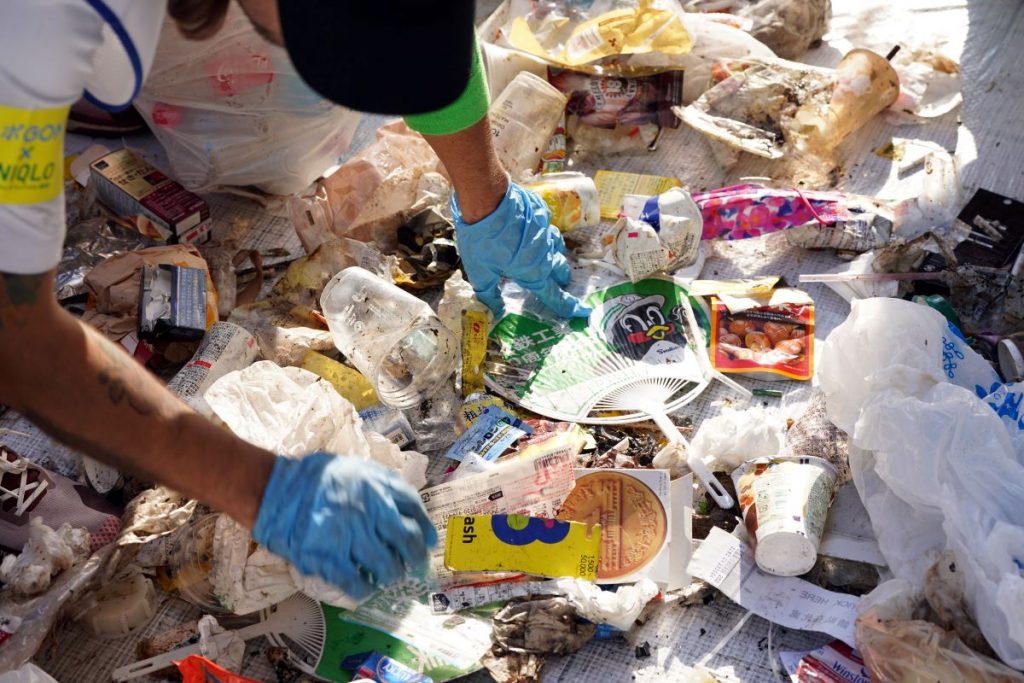
One negative impact of marine plastics is the consequences on marine-related industries like fishing and tourism. The risk of damage to ecosystems by plastics, which remain in nature for long periods of time estimated to be several hundred years or more, is also a factor.
Microplastics, small fragments of plastic degraded by sunlight and waves that measure less than 5 mm, are one major concern. Microplastics taken in by corals can affect other organisms, with ripple effects on entire ecosystems. Although no clear scientific conclusions have been reached, strong calls for countermeasures to prevent unforeseen impacts have been made.
Toward a Plastics Treaty
In Japan, mandatory fees for plastic bags were introduced in July 2020. Internationally, the creation of a framework for plastic countermeasures is also underway. The United Nations Environment Assembly (UNEA) resolved in 2022 to establish a new international convention on marine plastic pollution by the end of 2024.
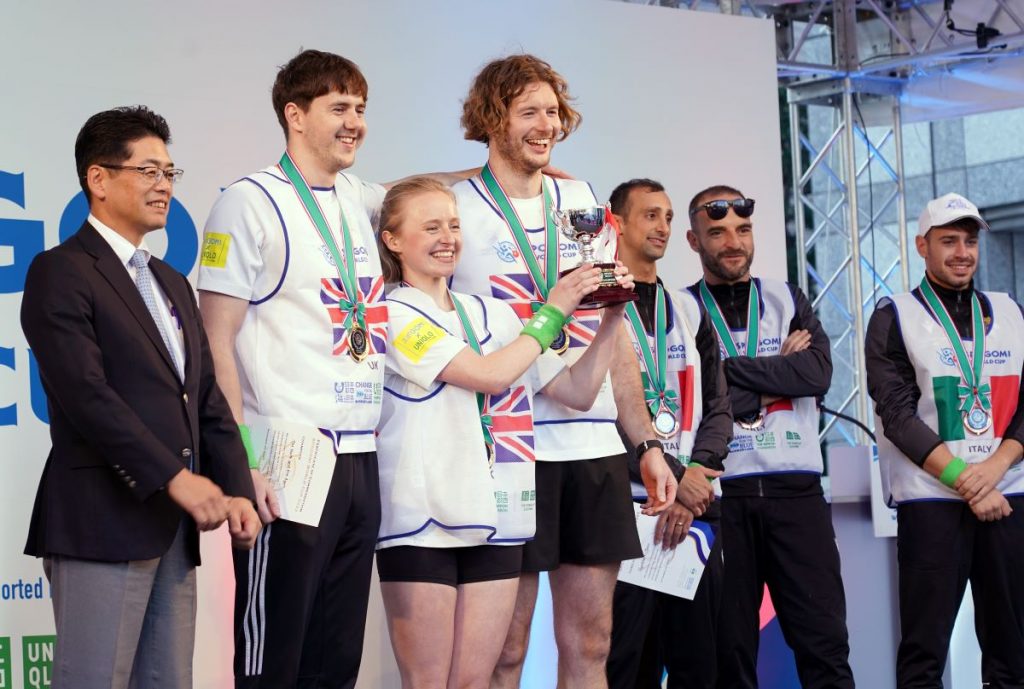
Dr Sadao Harada, associate professor of public economics at Doshisha University, points out that while regulations are being strengthened worldwide, such as the EU ban on the market distribution of certain disposable plastic products such as plates and straws, Japan's measures have been limited. "Japan has focused on recycling and reuse, with only a limited approach to reducing emissions," Dr Harada states. "A legally binding treaty would require results, forcing the existing system to change," he adds.
At the same time, Dr Harada notes that "reliance on Japanese technologies is high worldwide," which will lead to opportunities to create new industries and technologies. "Japan must have a strong desire to lead in creating new rules and technologies on an international scale," he stresses.
このページを 日本語 で読む






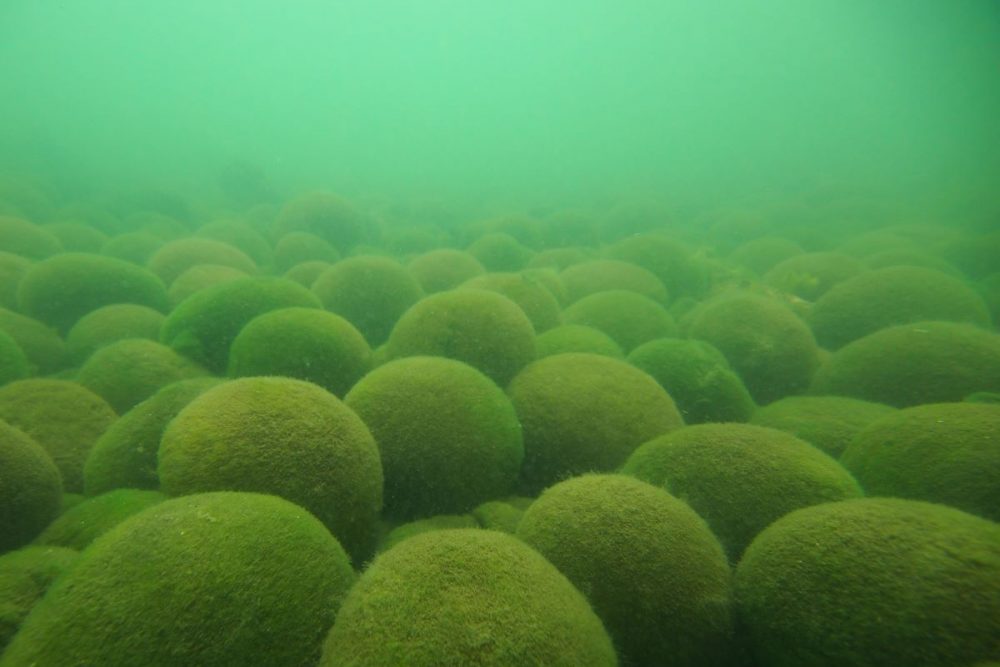
-Whaling-Today-November-8-rrss-rotated-1-1000x667.jpg)
